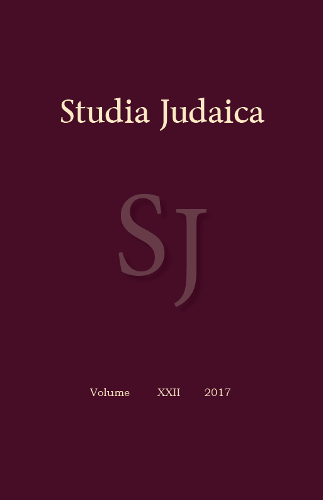Purity and Impurity in Judaism. Taboo Foods and the Kashrut Laws
Purity and Impurity in Judaism. Taboo Foods and the Kashrut Laws
Author(s): Ella Stiniguță LasloSubject(s): Jewish studies
Published by: Argonaut
Keywords: dietary laws;Jewish food system;ritual purity;taboo foods;food anthropology;
Summary/Abstract: Soon after man realised he needed to eat, he recognised the necessity for an established set of dietary rules. Perhaps the oldest documented corpus of food prescriptions is represented by the Jewish dietary laws (known under the generic term כשרות Kashrut). The Jewish dietary system represents one of the key elements of Jewish identity – the Kashrut is one of the pillars of Jewish religious life – but the Biblical rules that form its structure often seem arbitrary (or at least their rationale is hard to decipher). In the beginning of my study I will attempt to show why the first dietary taboo in the Garden of Eden represents a crucial point in the history of nourishment and how this moment is connected to future dietary laws. The aim of the second part of my article is to explain – using the anthropological theories developed by Mary Douglas – how these dietary laws do not serve a biological or nutritional purpose, but a metaphysical one, as a reminder of the ritual purity in the Temple.
Journal: Studia Judaica
- Issue Year: 22/2017
- Issue No: 1
- Page Range: 137-157
- Page Count: 21
- Language: English

